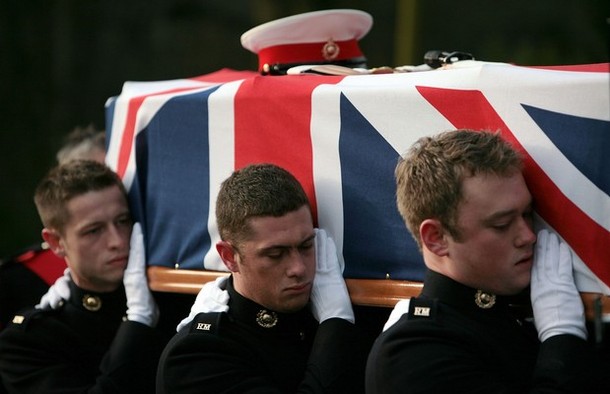
JOSIE'S BRITISH SOLDIERS.
JOSIE is a bright boy, living on a rocky farm in one of the towns of eastern Connecticut. He goes to the district school, that is kept three months in summer and three in 'winter, in the little, brown wood school-house standing at the fork of the roads just beyond his father's garden.
When Josie was a little fellow, before he could tell O from Q, indeed, or B from D, he greatly enjoyed hearing the class in United States History recite, and spent many happy hours over the pictures in the thick text-book used in the school.
He knew about the battle of Bunker Hill and the battle of Groton Heights. He went to Groton one summer day, and his cousins took him to see the monument, and showed him forts Trumbull and Griswold across the Thames River, at the mouth of the New London harbor.
He got the fact very firmly fixed in his childish mind that the British soldiers were sent here by the king to make trouble, and that our great-grand-fathers and uncles went out with guns and swords to fight with- them and drive them away; and he was never tired of hearing about those troublesome times.
One day Josie got into mischief, and when his mamma found him, she said,—
"I am very much surprised, Joseph. You would better go out in the garden, and think how naughty you have been. You can stay out until you are sorry, and ready to say so, and ask forgiveness." Josie was vexed at being called Joseph, and thought he had been very much wronged. As he dug his bare toes into the soft black earth in the path between the two rows of currant bushes, he thought to himself,—
"I shall never be sorry, because I don't want to be sorry. I don't see as have done anything so very, very bad. I know what I will do.
I'll just run away up to the village, and make my Aunt Jeanette a visit; and when my mamma looks for me, she won’t find me, that's what she will find. I will run away from her; and then, perhaps, she will wish she had let me eat all the cake and currant jelly out of the pantry cupboard that I wanted to."
So Josie called the dog, Brace, and trotted away across the orchard, over the wall, trough the clover meadow, where the trout-brook sang, up the green pasture hill, where the white cow and the cosset lambs were feeding, and into the leafy, ferny woods.
He knew the way well enough. He had followed the narrow, zig-zag footpath many a time with his mother and his sister Annie, but it seemed strange to be up here alone, especially when he had been doing wrong; for it was wrong, he knew, to go into the pantry when mamma was gone, and help himself to the cake and jelly in the corner cupboard.
Brace, the big, fat dog, had nothing to trouble him, and enjoyed the walk very much. He trotted on after his little master, sniffing for rabbits and having an eye out for squirrels. Thinking all at once that he caught the flash of a bushy tail in the sunlight, he pricked up his short ears and dashed down the bank into a thicket.
Josie, still planning how he should make Aunt Jeanette understand why he had come all alone, had forgotten all about Brace, and hearing a crackling of dead branches, he began to scream and cry out,—
"Oh! It is the British soldiers! The British soldiers! They are after me!" And turning about, he ran for home as fast as his small, bare feet would fly. The big, fat dog, who could not think what it all meant, ran close behind him, but guilty little Josie, hearing his steps, thought they were the footfalls of a squad of "red coats."
Reaching the house, the child threw himself, white and almost breathless, into his mother's arms.
"Oh! The British soldiers the British soldiers!" he sobbed. "I have been through the woods so many times, and they never came after me before.
How did they know I was running away so as to make you sorry that you punished me? Did a little bird tell them?"
"It was not the British soldiers, my child," said his mother, as she bathed the heated, tear-wet little face. "They all left this country as soon as the war you are so fond of hearing about was over. It was my own little boy's heart that was so full of bad thoughts that every sound meant something bad to him."
Josie sat down on the steps just outside of his mother's door, and thought the morning all over.
At last he said,—
"If I had gone to town, I shouldn't have been lost in the woods, but mamma would have thought I was, and that would have made it just as bad for her. And I didn't hear British soldiers, but I thought I did, so that made it just as bad for me.
So I got punished and fooled for wanting to fool and punish mamma." Josie is a big boy now, well up in his "United States History," but when he is tempted to do anything wrong, he says to himself, "I'd better not, or the British soldiers will be after me."
Annie A. Preston.